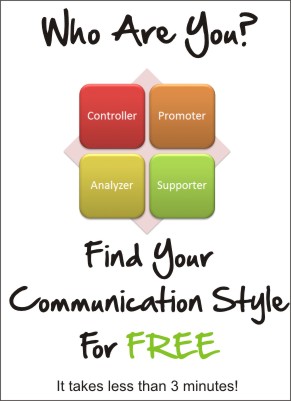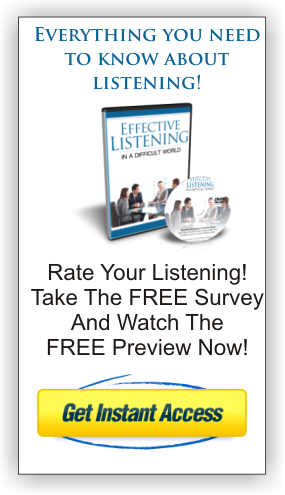
Your representational system is primarily AUDITORYWhat this means for effective communicationEach person has a preferred method of receiving and storing information and we call this their "representational system". For example: the room temperature of 72 degrees Fahrenheit is the same physical temperature as about 21 degrees Celsius. It is the same information, just represented in a different way. People have different systems for absorbing and storing information... it's the same information, just stored a different way. Adapting the way that you give the information to the way the other person prefers to receive it, will instantly make you a more effective communicator. Auditory people tend to absorb information from the world around them using primarily the words and sounds that they hear. They tend to store the information primarily as sounds. Of course auditory people also use visuals, feelings, and logic when necessary, so your representational system is not always the same in every situation, but we each have an overall preferred method. The results of the survey indicate that yours is primarily Auditory. Some of the common characteristics of an auditory person
Sample wordsPeople tend to use and prefer words and phrases that match their representational system. Some examples for auditory people are:
Sample phrases
How you can tell if someone is auditoryWhen you interact with other people, it's not possible to give them the survey to find our what their representational system is, so you will have to use your powers of observation and do a little detective work. Here are some clues that you can look for:
How you can use thisThe first rule of Maximum Communication is that the result of the communication is the responsibility of the communicator. Knowing your system and the system of the other person or persons will allow you to convey your information in a way they will be able to understand by adapting your speaking, writing, or presentation to match their representational system. Remember... it's your responsibility to change to match them if you want to be effective. One of the ways that this can be done is simply to match the words they use. If they say "talk you later", don't say "see to you later", say "talk you later". You can increase their understanding simply by matching their words. But, that's just the beginning! Learn moreFor a fun and entertaining explanation of how representational systems work, join me for "I Think I Know What I Think You Said". This DVD is a recording of a live presentation and includes information about the other three systems (visual, kinesthetic, digital) along with demonstrations and a complete method for easily using the power of representational systems in your daily communication.
The regular price at live events is: $49.95. Your special price is $29.97 when you order now. Of course it comes with my money back guarantee.
|
Copyright © 2008-2013 • • 800-788-2068


 Facebook
Facebook Twitter
Twitter Stumbleupon
Stumbleupon

